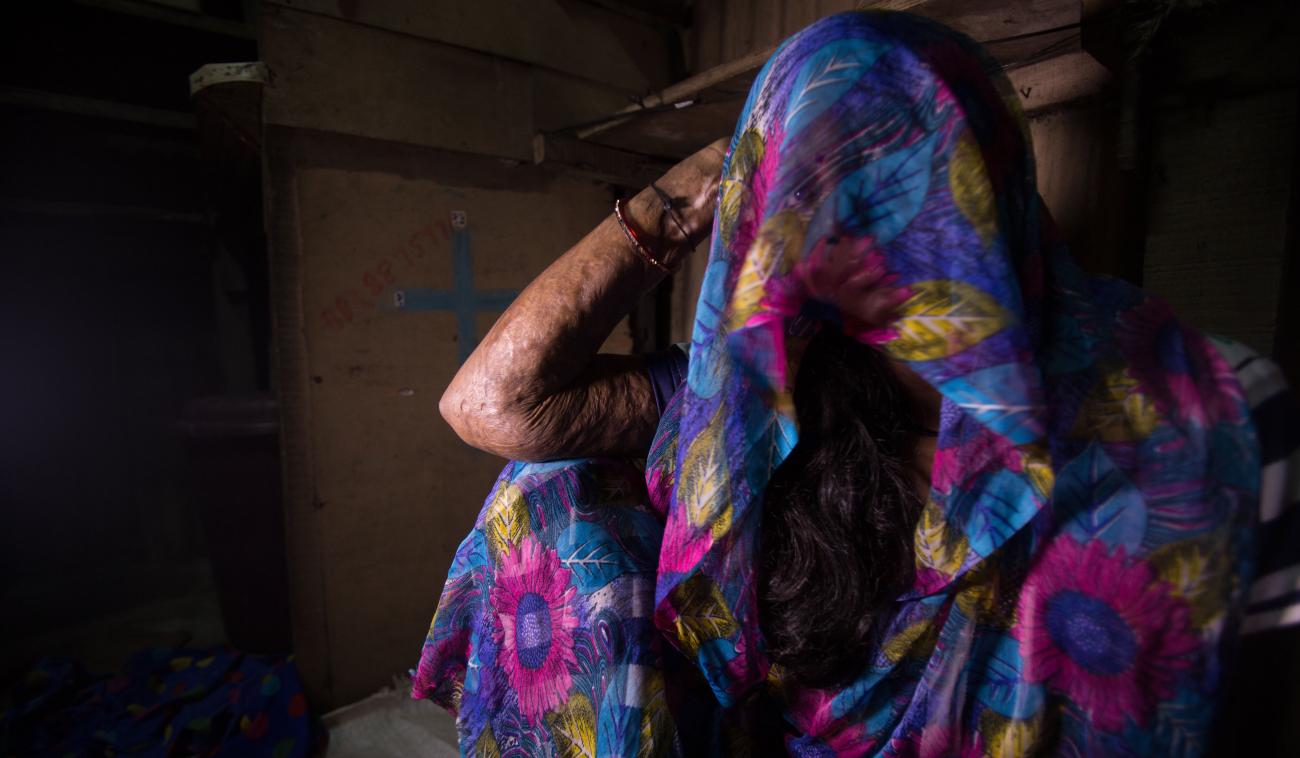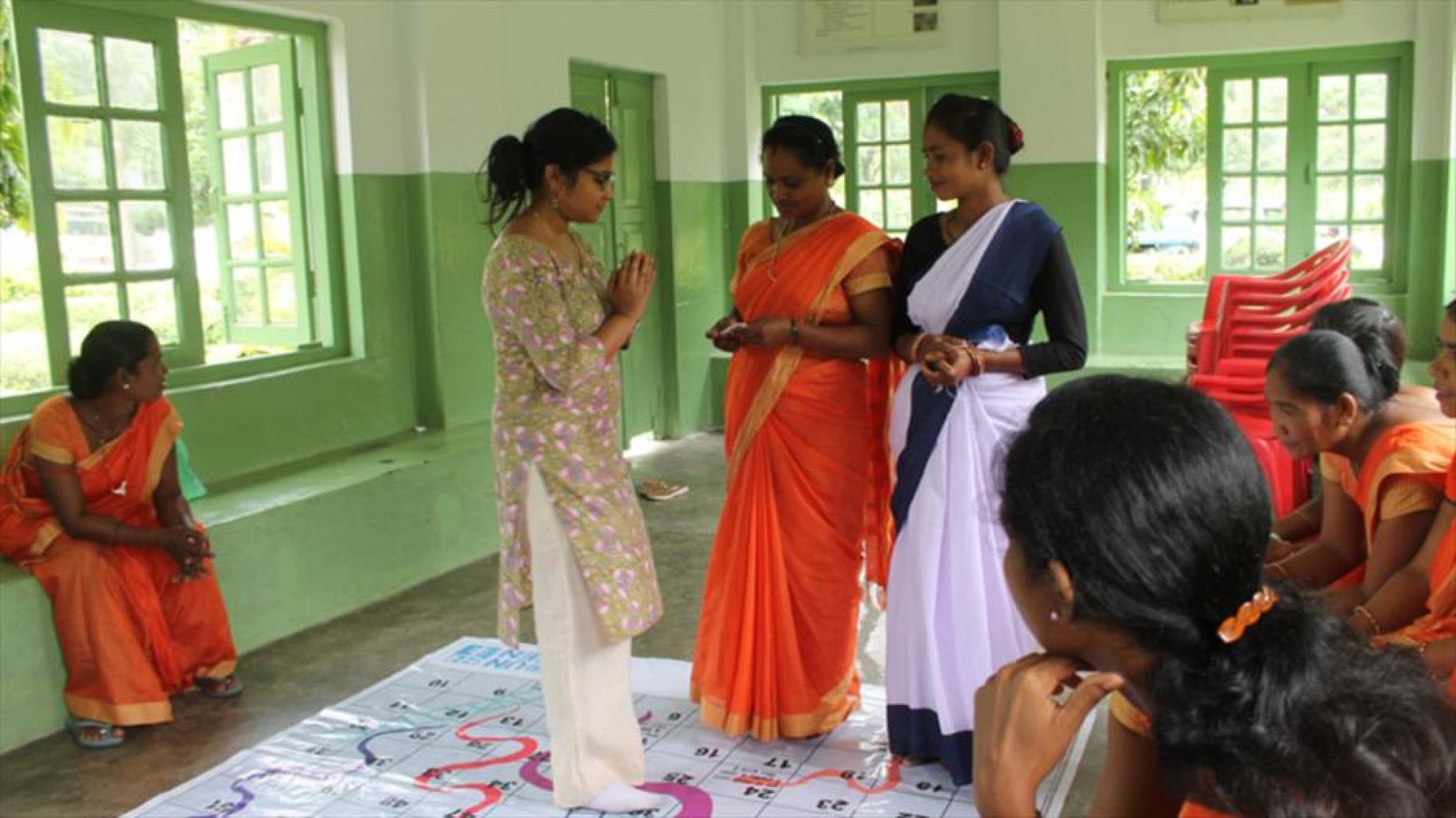Shadow Pandemic: UN India responds to uptick in violence against women and girls during COVID-19

Earlier this year, on a tea estate in northeast India, a woman named Manjita found herself in a vulnerable place. The spread of COVID-19 had led to shutdowns, and now Manjita - not her real name - was isolated at home with an abusive partner, cut off from any services or support networks.
Then, one night, after being beaten by her husband, Manjita was forced from her home. With nowhere else to go, Manjita reached out to a Jugnu Club member for help.
The Jugnu Clubs are self-empowerment groups formed by women tea pluckers and factory workers on tea estates in Assam. With support from UN Women, the clubs, in select locations in Assam, help make agricultural work safe and equal for all women and girls.
When Manjita reached out to Jugnu Club members, they immediately helped by giving her shelter in one of their houses at night. They helped her file a complaint with the police and spoke with the husband and his family members in the presence of police.
Jugnu means ‘fireflies,’ and points to the torch-bearing role women play in transforming their own and each other’s lives. The clubs provide a safe space for women and girls to share their experience and concerns. Members also do public education through skits during festivals, community meetings, film screenings; and they make recommendations for improving workplace safety on the tea plantations.

During the COVID-19 pandemic, the clubs boosted their support network, in response to increased need. Besides supporting the clubs, UN Women has also developed a Global Women’s Safety Framework in Rural Spaces, informed by the experiences of working in the tea sector.
“Shadow pandemic” is on the rise
UN agencies have long worked to stop gender-based violence. Now that work is even more needed. “The COVID-19 pandemic has upended lives and livelihoods of millions,” says Argentina Matavel Piccin, UNFPA Representative in India.
“Beneath COVID-19 is the shadow pandemic of gender-based violence. With restricted mobility and limited access to essential services, the rise in violence is often hidden. We must deal with both of these crises.”
Also active during COVID-19 is the network of government-run “one-stop centres,” which help women facing violence. One such centre in the eastern city of Cuttack, offers emergency housing, counselling and referral services. Says one employee, Soumya Sahu, “I listen to the survivors, understand their stories, counsel them, and ensure that centre staff are able to provide them with all the necessary care and support.”
It’s a big job that the centres can’t do on their own. That’s why the centres have joined forces with the police, the District Legal Services Authority, as well as Women’s Self-Help Groups (SHGs) and college students through rural childcare centres. The centres have also gotten a boost from UNFPA, which has been training crisis centre staff, health workers, and others on counselling and other services.
“Violence against women has not ceased during this crisis,” says Sahu. “We kept our centre open and continued providing services even during the lockdown. My staff and I go regularly to schools, colleges, nursing institutes, and neighbourhoods, where we talk with people and conduct trainings on gender.
An active Jugnu member named Amrita says that COVID-19-related lockdowns meant greater isolation, fewer services, and a higher incidence of domestic violence. "Awareness is the only way,” she says. “People need to know what domestic violence is and the steps required to make the workplace safer for women.”
“Everyone has a role to play,” says Susan Jane Ferguson, Country Representative of UN Women India.
“The government of India, along with women’s groups, community advocates, UN agencies, and committed individuals are working tirelessly to address violence against women and girls. We must redouble our efforts to eradicate the shadow pandemic and gender-based violence forever.”
Produced by UN India. Editorial support from Paul Vandecarr, Development Coordination Office. To learn more about the work taking place in the country, visit: https://in.one.un.org/.





































